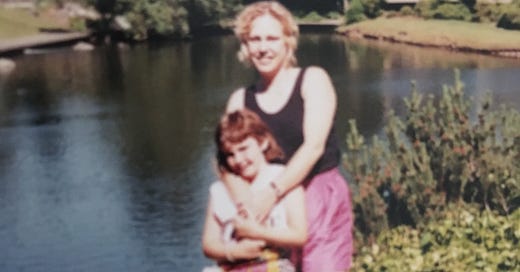13 years ago, my mother died by suicide.
I say “died by” because “committed” implies a crime.
She did not commit a crime, but she also did not make a choice, or see her life as one with choices.
I’ve written here often about asking myself what I want, and how revolutionary and life-changing that question can be.
I am not sure that my mother ever got to ask herself that question in the way I have asked myself that question.
13 years ago today, my ideas about who I was and what the world was all disintegrated within moments of finding out she had shot herself.
I will never recover from her suicide, nor would I want to recover.
What would I recover? Everything before her death was transformed by the way she died.
After she died, I learned to accept chaos. I realized: we know nothing.
Nothing about why we are here in this world, and nothing about the invisible realms that surround us. I learned to hold that not knowing and let it be, rather than ascribing to rigid narratives.
Keep reading with a 7-day free trial
Subscribe to Gathering to keep reading this post and get 7 days of free access to the full post archives.





